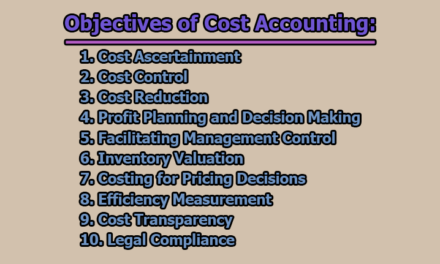Essential Money Saving Tips for Students:
Are you a student facing challenges managing your money throughout the month? Don’t worry; you’re not alone. It’s time to learn about financial literacy and money-saving tips. Being a student is more complicated and expensive than it appears. Considering your financial situation, it’s crucial to stick to a budget. Besides your college fees, there are other expenses to handle. Overspending might lead to debt after graduation, while underspending could limit your ability to have fun and explore new experiences. Therefore, it’s important to plan your spending wisely. In this article, we will explore the essential money saving tips for students.
Why Should Students Learn About Money Saving Tips?
As a student, you may have heard teachers and parents stress the importance of saving money and offer creative ways to earn extra income. But why is it so crucial, especially for students? Let’s delve into some practical reasons:
1. Preventing Future Financial Strain: One of the primary reasons for students to learn about money-saving tips is to prevent future financial strain. As they transition into adulthood, students often face numerous expenses, including rent, utilities, and unforeseen emergencies. By cultivating a habit of saving money early on, students can create a financial safety net that shields them from the stress of unexpected financial challenges.
2. Building a Foundation for Financial Independence: Financial independence is a crucial aspect of adulthood. Learning to save money empowers students to rely less on external support, fostering a sense of autonomy. This financial independence allows students to make decisions based on personal preferences and career aspirations rather than financial constraints, creating a foundation for a more fulfilling and self-determined life.
3. Harnessing the Power of Compound Interest: Understanding the concept of compound interest is essential for students. By starting to save early, they can take advantage of the compounding effect, where the interest earned on savings generates additional interest. This can result in significant long-term gains, providing a financial cushion for major life events like buying a home, starting a family, or retiring comfortably.
4. Managing Student Loans and Debt: Student loans often accompany the pursuit of higher education. Learning money-saving tips equips students with the tools to manage and pay off these loans efficiently. By implementing savings strategies, students can proactively work towards reducing debt burdens, avoiding the long-term financial stress that substantial student loans can bring.
5. Creating Room for Career Exploration: Financial stability allows students the luxury of exploring their career options without the immediate pressure of securing a high-paying job for survival. This flexibility enables them to pursue internships, engage in networking opportunities, and take on low-paying but valuable positions that align with their long-term career goals.
6. Mitigating Post-Graduation Challenges: Post-graduation can be a challenging period, marked by uncertainties and transitions. Students who have saved money during their academic years have the flexibility to weather this transition more comfortably. Whether it’s taking time to travel, pursuing further education, or navigating job searches, savings provide a buffer against the immediate need for a high-paying job.
7. Enabling Further Education and Skill Development: Learning doesn’t end with graduation. Many students aspire to pursue further education or acquire additional skills to stay competitive in their chosen fields. Money-saving habits open up opportunities for ongoing education, ensuring that students can invest in their personal and professional growth throughout their lives.
8. Coping with Emergencies: Life is unpredictable, and emergencies can arise at any moment. Whether it’s a health crisis, a car breakdown, or unexpected travel expenses, having savings ensures that students can tackle these unforeseen circumstances without resorting to high-interest loans or accumulating debt.
9. Enhancing Mental Well-being: Financial stability contributes significantly to mental well-being. Students who have control over their finances, thanks to money-saving habits, experience less stress and anxiety related to monetary concerns. This, in turn, positively impacts their overall mental health and academic performance.
10. Fostering a Lifetime of Financial Responsibility: Perhaps most importantly, learning about money-saving tips instills a sense of financial responsibility that lasts a lifetime. These habits become ingrained in a person’s lifestyle, guiding their financial decisions well beyond their student years. The early adoption of responsible financial practices sets the stage for a secure and prosperous future.
Money Saving Tips for Students:
Now that we understand the importance of financial literacy, let’s delve into practical money-saving tips for students:
1. Make a Budget and Stick to It: Create a realistic budget that outlines your sources of income and allocates funds to different categories, including essentials like rent, utilities, groceries, and discretionary spending. Regularly review and adjust your budget as needed. Sticking to a budget ensures that you are aware of your financial limitations and prevents overspending.
2. Track Your Spending: Keep a detailed record of your expenses to identify areas where you can cut back. Utilize budgeting apps or spreadsheets to categorize your spending and analyze patterns. Tracking expenses helps in making informed decisions and curbing unnecessary spending.
3. Understand Your Needs and Wants: Distinguish between needs and wants. Prioritize spending on essentials such as rent, groceries, and educational materials. Avoid impulsive purchases that fall into the category of wants, as they can quickly deplete your budget.
4. Utilize Money-Saving Hacks: Explore various money-saving hacks, such as buying second-hand goods, using coupons, and taking advantage of student discounts. Buying used textbooks, furniture, or electronics can significantly reduce expenses.
5. Save Money on Books and Food: Opt for second-hand textbooks, digital copies, or consider renting instead of buying new books. Plan your meals to avoid frequent takeout or dining out. Cooking at home is not only cost-effective but also healthier.
6. Plan Your Meals: Planning meals in advance allows you to create a shopping list and avoid unnecessary purchases. Consider batch cooking to save time and money. Bringing homemade meals to campus can help you resist the temptation of expensive cafeteria options.
7. Shop at Discount Stores or Use Coupons: Take advantage of discount stores for your shopping needs. Many retailers offer student discounts, so always inquire about these opportunities. Additionally, use coupons for groceries and other essential items to maximize savings.
8. Ask for Student Discounts: Many businesses provide discounts to students upon presentation of a valid student ID. Whether it’s shopping for clothes, electronics, or even entertainment, always ask if a student discount is available. This can lead to significant savings over time.
9. Choose Social Activities for Entertainment: Explore free or low-cost social activities for entertainment. Attend campus events, join clubs, or organize gatherings with friends that don’t involve expensive outings. Engaging in cost-effective social activities allows you to have fun without straining your budget.
10. Join a Club: Participating in campus clubs not only enriches your college experience but can also provide access to cost-effective resources and activities. Many clubs organize events, workshops, and outings that contribute to your social life without breaking the bank.
11. Buy Second-Hand Goods for Money-Saving: Consider purchasing second-hand goods, including clothing, furniture, and electronics. Thrift stores, online marketplaces, and campus bulletin boards are great places to find affordable used items. Selling your own used items can also generate extra income.
12. Track Your Expenses: Regularly monitor your spending to identify areas where you can cut back. Use budgeting apps or simple spreadsheets to track expenses and analyze your financial patterns. This awareness helps you make informed decisions about your spending habits.
13. Take Advantage of Freeware Software: Explore freeware options for software needed for your academic projects and assignments. There are many free alternatives available for word processing, spreadsheet, and note-taking software. Utilizing these tools can save you money on software subscriptions.
14. Shopping for Groceries and Food Items in the Evening: Many supermarkets have clearance sales in the evening, offering discounted prices on perishable items that are approaching their expiration dates. Shopping during these times can help you save money on groceries.
15. Practice Money-Saving and Cook for Yourself: Cooking your meals at home is not only cost-effective but also healthier. Consider meal prepping for the week to save time and ensure you have affordable and nutritious options readily available.
16. Keep the Credit Card Out of Sight: Avoid relying heavily on credit cards, as it can lead to impulsive spending and accumulating debt. Paying in cash helps you keep track of your expenses and encourages responsible spending.
17. Free Entertainment Is a Good Money-Saving Tips for Students: Explore free entertainment options, such as community events, outdoor activities, or movie nights with friends. Finding enjoyable activities that don’t require spending money can contribute to a fulfilling social life.
18. Find Affordable Student Housing: Research affordable housing options near your college or university. Consider sharing accommodation with roommates to split costs. Choosing housing close to campus can also save money on transportation.
19. Stay Away From Impulsive Students: Be mindful of your social circle and avoid getting influenced by impulsive spenders. Surround yourself with friends who value financial responsibility and support your money-saving goals.
20. Part-time Jobs: Explore part-time job opportunities that align with your schedule and academic commitments. Part-time work not only provides extra income but also valuable work experience. Maintain a balance between work and studies to ensure both aspects thrive.
In conclusion, financial literacy is a crucial skill for students to master. Understanding the significance of saving money and implementing practical tips can pave the way for a more secure financial future. By adopting smart spending habits and making informed financial decisions, students can navigate the challenges of student life while enjoying a fulfilling and financially responsible journey through their academic years. So, start early, save diligently, and empower yourself with the knowledge and habits that will last a lifetime.

Library Lecturer at Nurul Amin Degree College










